Trump's 'America first' policy turning out as 'America alone' stance
US President Donald Trump’s unilateral decisions to withdraw from the Paris climate accord, “decertify” the nuclear deal with Iran and pull out of the Trans-Pacific Partnership (TPP) with allied nations has made his so-called "America first" approach appear more and more like ‘America alone’ stance, a US-based daily says.
“It is not just on trade that Trump has sought to stake out positions that have isolated the United States from the rest of the world,” The Washington Post reported Saturday. “His plans to withdraw from the Paris climate accord … could mean that the United States is the only country in the world not committed to it, since Syria announced its intention to join last week.”
The influential daily further pointed to Trump’s recent decision not to recertify the Iran nuclear deal – known as the JCPOA – insisting that it has “put him at odds not just with China and Russia, but also with US treaty allies Britain, Germany and France,” the other signatories of the landmark agreement besides Tehran.
The report then mentions Japan as another close Washington ally that joined other signatories of the new TPP trade agreement which excludes the United States. Other signatories of the pact are US neighbors Canada and Mexico and close allies Australia and New Zealand, as well as Chile, Malaysia, Peru, Singapore, Vietnam and Brunei.
Top trade officials from the 11 remaining members of the deal agreed on a plan to bring the pact into force without Washington, according to a joint statement released after Trump sharply slammed large multilateral trade deals during his keynote address at the annual Asia-Pacific Economic Cooperation (APEC) summit in Vietnam.

"Ministers are pleased to announce that they have agreed on the core elements of the Comprehensive and Progressive Agreement for Trans-Pacific Partnership (CPTPP)," a statement said.
During a press conference on Saturday morning in Vietnam, Japan’s Minister of Economy, Trade and Industry Toshimitsu Motegi and his Vietnamese counterpart Tran Tuan Anh took questions on the new pact, although details on its terms remain to be worked out among members.
Motegi, however, confirmed previous reports that Canada was the reason that the deal was held up after an agreement was thought to have been reached on Friday.
He further stressed the importance of maintaining a high-standard deal even without Washington’s involvement, saying,“That is why the quality of the agreement has been reaffirmed in two new words: comprehensive and progressive. We consider this an overarching goal of TPP.”
The Post added, however, that other signs from Trump’s tour of the region also pointed to "a shift in the way the United States promotes itself abroad — and in how the country is viewed and treated by others."
In Japan and South Korea, according to the daily, Trump emphasized that his foreign policy is aimed at achieving “peace through strength” — a phrase popularized by former President Ronald Reagan that Trump used during his campaign.
The engineering feat behind Iran’s record gas output
VIDEO | Press TV's news headlines
Freedom of speech, right to protest under assault in UK
Border guards seize cache of weapons, ammunition near Iran-Afghanistan border
Grok to power classified programs as Musk's xAI secures deal with Pentagon
Iraqi FM tells US envoy: Government formation ‘internal matter’
Israel killed Gaza aid workers in ‘execution style’ massacre in 2025: Report
Participation shrinks at Israeli arms expo in wake of Gaza genocide: Report


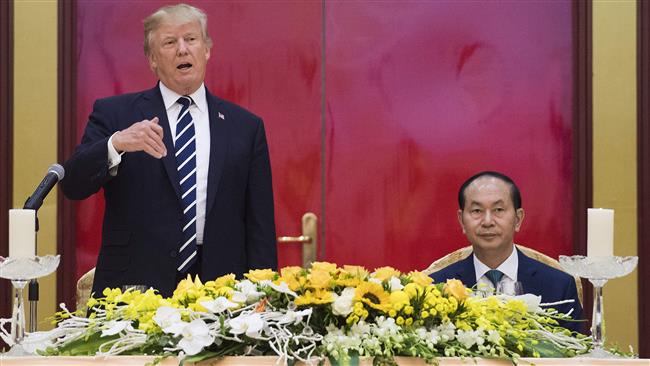
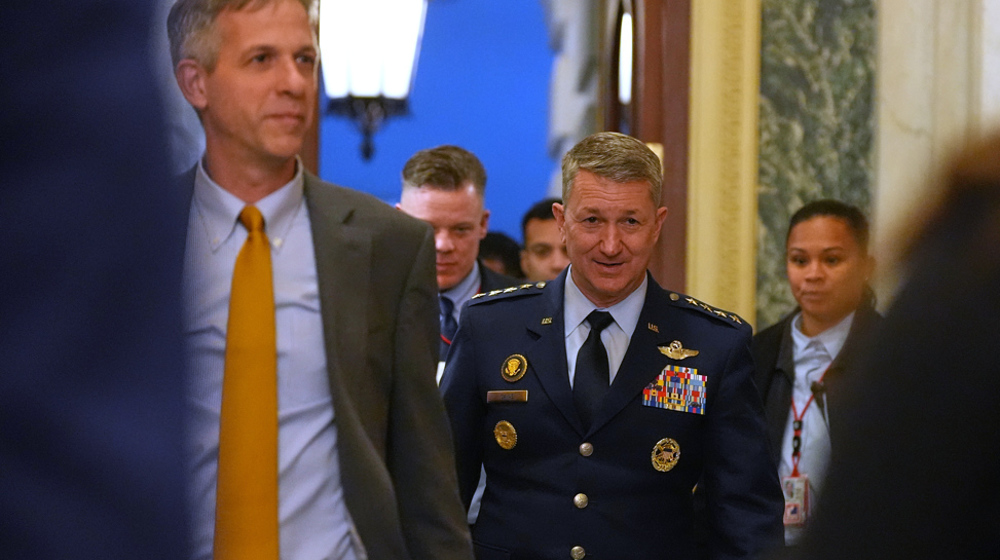
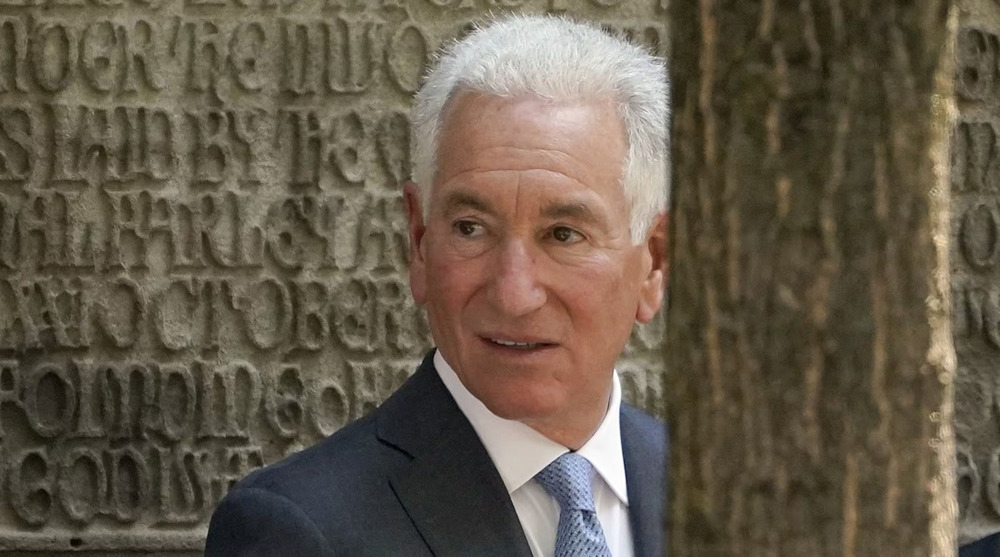
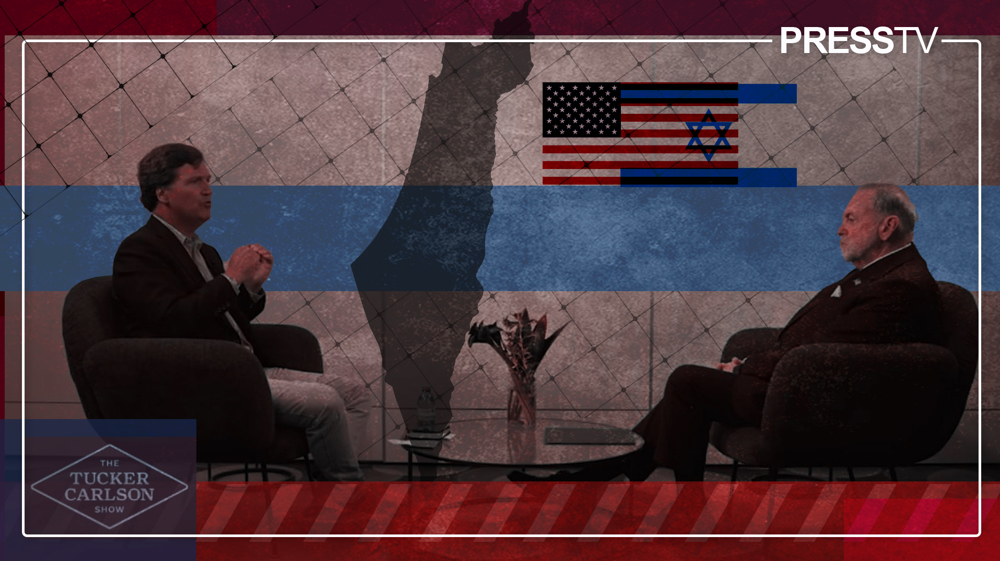



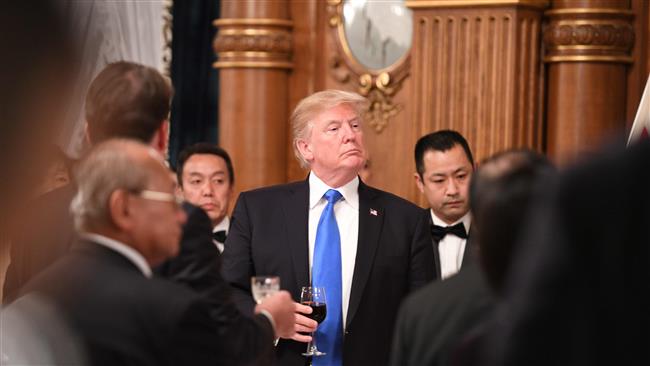
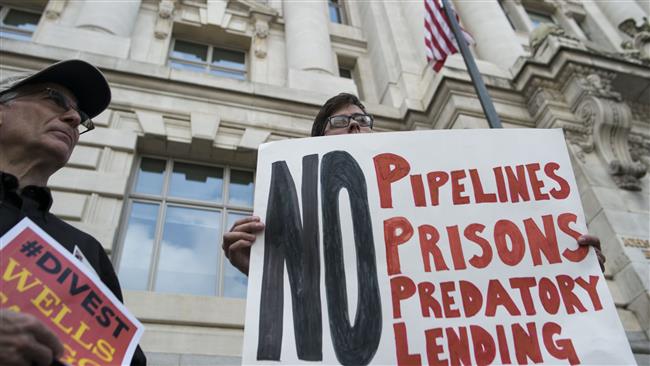
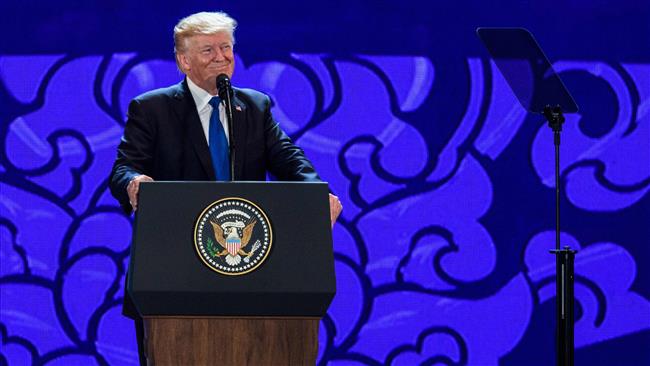

 This makes it easy to access the Press TV website
This makes it easy to access the Press TV website